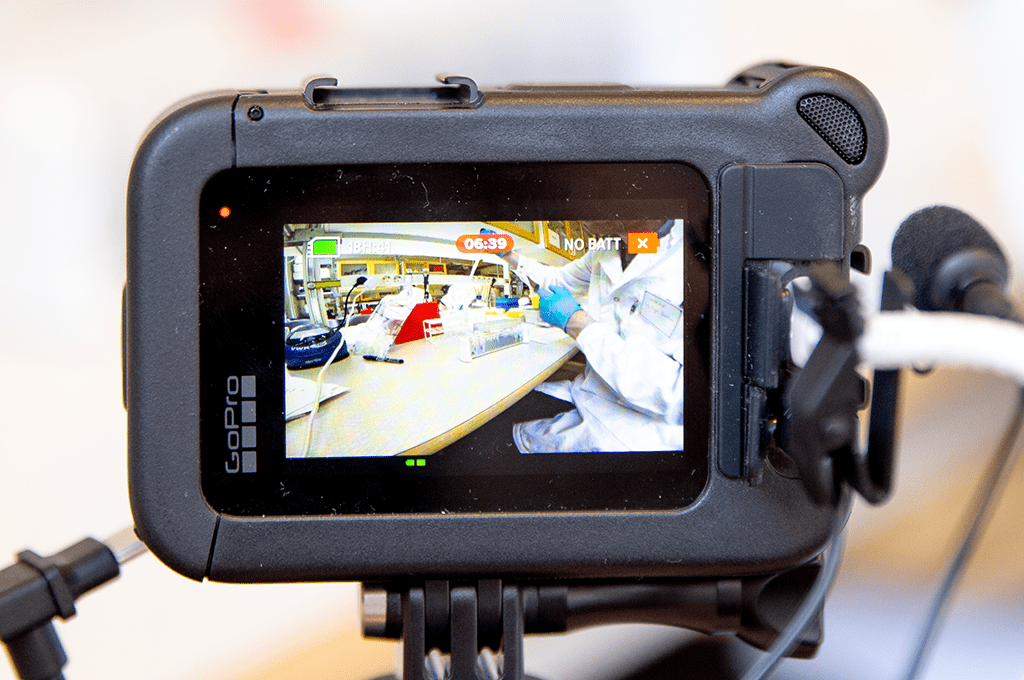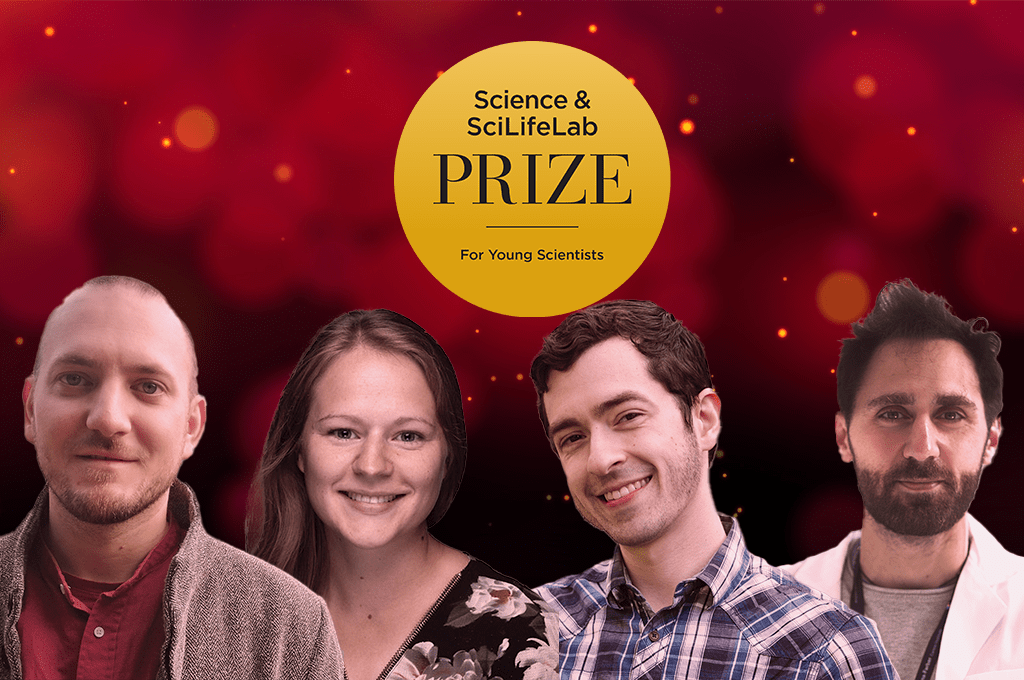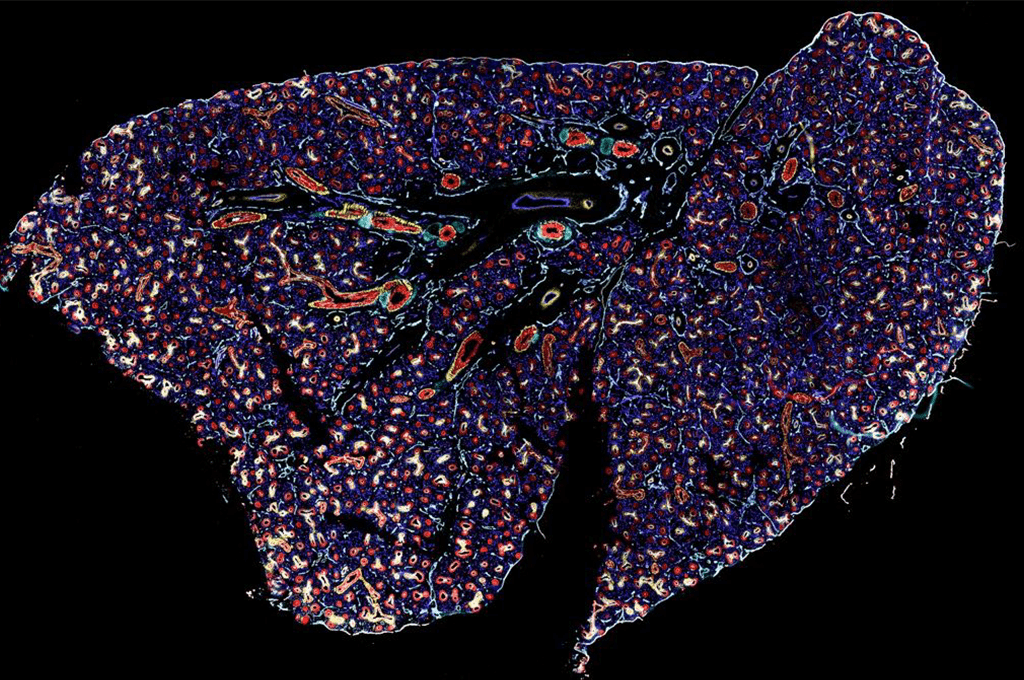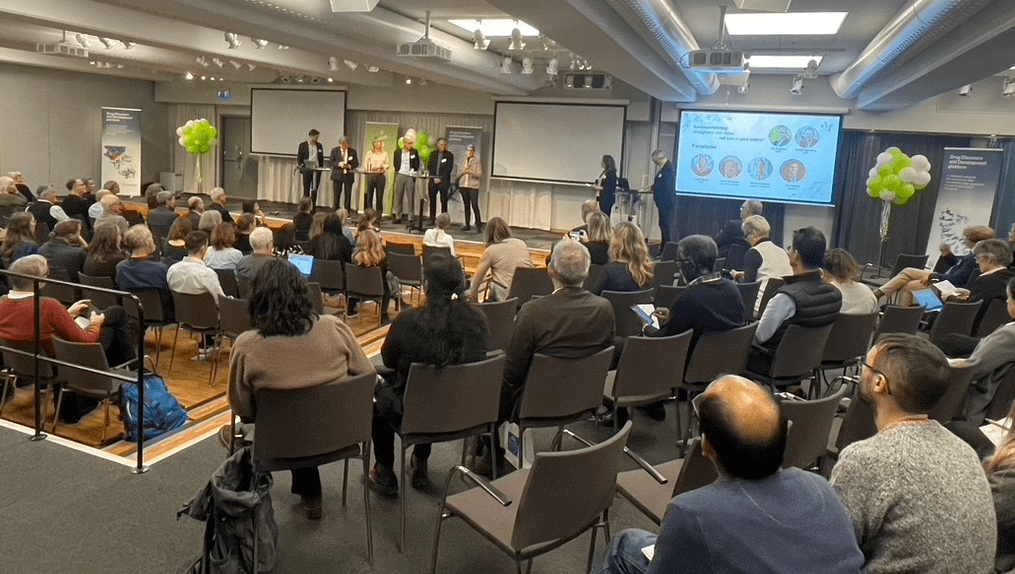Advancing Data-Driven Life Science: DDLS Conference Showcases AI, Precision Medicine and Education Initiatives
The 2024 Annual DDLS Conference brought together scientists, data experts, and students to explore advancements in AI, precision medicine, and open science in life sciences and more that comprises the scope of the SciLifeLab & Wallenberg National Program for Data-Driven Life Science (DDLS). From pioneering diagnostics to personalized health strategies and satellite events engaging the DDLS research school students, this two-day event showcased the importance of data-driven approaches in tackling complex biological challenges.
Olli Kallioniemi, Director of the SciLifeLab & Wallenberg National Program for Data-Driven Life Science, opened the conference with an update on the program’s progress and current achievements.
“Our journey with the DDLS program has reached significant milestones, showing how data-driven approaches transform life sciences. The scientific achievements presented by the DDLS fellows were extremely interesting, and highlight the importance of new recruitments and large-scale initiatives in supporting life science”, said Olli Kallioniemi, referring to the 3.7 billion SEK investment that the Knut and Alice Wallenberg Foundation has invested in data-driven life science.
The purpose of the program is to train and recruit the next generation of life scientists, to create a strong computational and data science base, and to strengthen the competencies in today’s research society. Along with research, education and training are key components of the program.
“The DDLS Research School is launched during 2024. All in all, over 400 hundred PhD and post-docs will be recruited to the program. During the annual conference, we hosted satellite events where the PhD students for the first time could meet each other and the Research School directors and us in the Research School team. The focus was to give the students an overview of the program and to give them a possibility to network. There will be a network meeting in March 2025”, said Ulrika Wallenquist, Coordinator of the DDLS research school.
The conference program held presentations from DDLS fellows, invited key-note speakers, workshops, poster sessions as well as flash talks selected from the posters.
Open science and the necessity of FAIR (Findable, Accessible, Interoperable, Reusable) principles on data management was a common thread throughout the conference. Malvika Sharan, Senior Researcher at the Alan Turing Institute, presented The Turing Way, a community-led project on data science, an open source, open collaboration and globally distributed community working together to make data science accessible, reproducible and beneficial.
“Open science is not enough, if you don’t describe the results, the science is not reproducible, replicable, robust and generalisable. We think of the Turing Way as a global digital common”, said Malvika Sharan in her talk Open science for community-centered adoption of data science and AI: Insights from The Turing Way.
Cornerstones of the Turing Way are open access, the resource; open source, for the community; shared best practices focusing on norms and values; and interventions, the action-based pillar of the Turing Way.
“Open access enables free public access to research, accelerating knowledge dissemination and benefiting society. FAIR principles promote data sharing and collaboration across disciplines, ensuring reproducibility and advancing research. This openness is especially impactful in life sciences, where rapid, transparent access to data supports breakthroughs in healthcare and environmental solutions, ultimately enhancing public health and maximizing the societal impact of scientific knowledge”, commented Parul Tewatia, Project coordinator (FAIR metadata and semantic technologies) at SciLifeLab Data Centre.
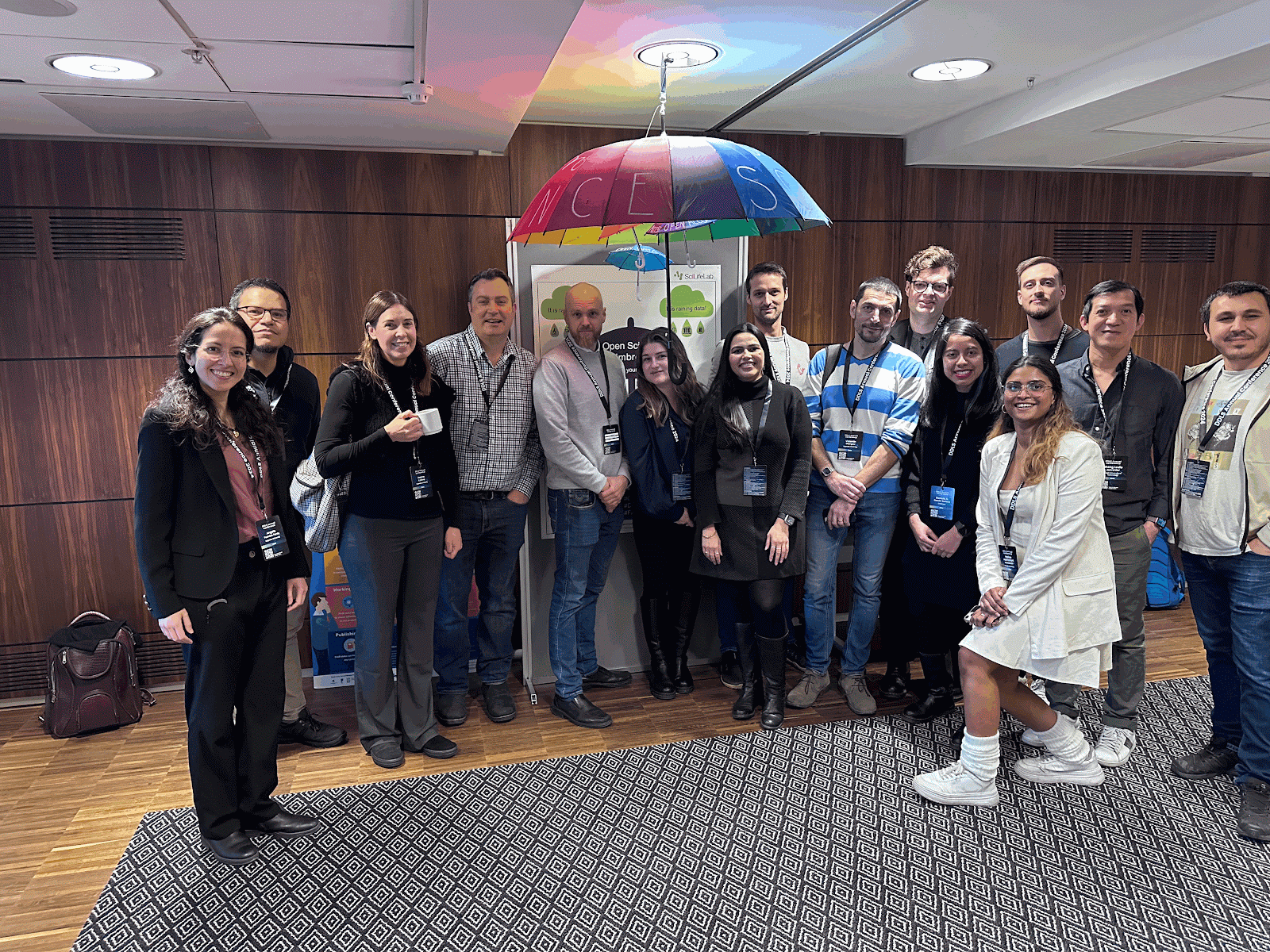
SciLifeLab Data Centre, advocating for FAIR principles and open science.
Chris Erdmann, Head of Open Science at SciLifeLab reflected on strategies for implementing FAIR principles and open science practices within research communities.
“There is a lot under the umbrella of open science, in your daily work you may be focusing on development of software or algorithms. The other part is values and principles and the quality and integrity aspect of open science. SciLifeLab has a data policy and has joined together with 700 institutions around the world in the Coalition for Advancing Research Assessment (CoARA). Funders are aligning with this as well, and there is today a general alignment of asking for open access and data as a requisite for funding, said Chris during the presentation Building Open Science Together: A Collaborative Session on Tools and Approaches to Meet FAIR and Open Science Guidelines and Policies.
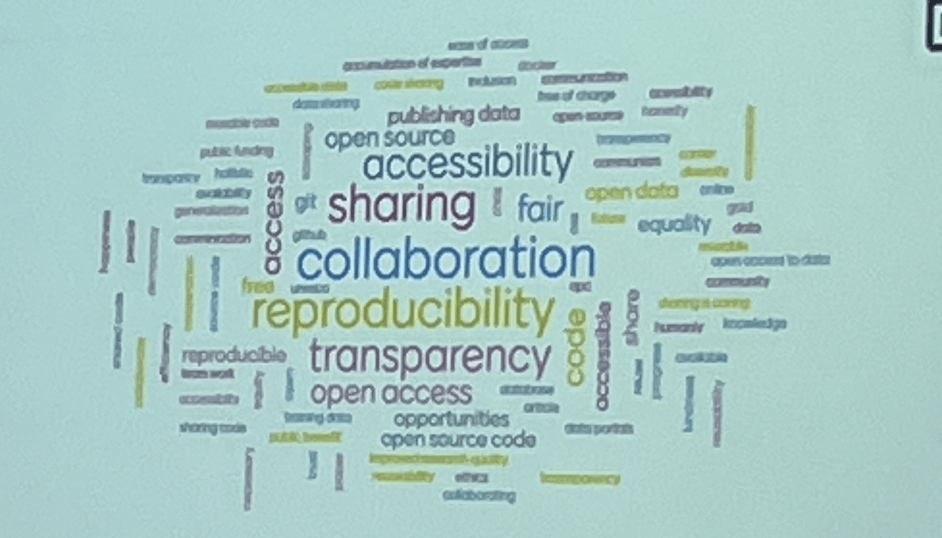
What words do you associate with open science, Chris Erdmann asked the audience, who co-created a word cloud highlighting accessibility, sharing, FAIR, collaboration, reproducibility, transparency and open access
Before the close of the DDLS Annual Conference, the Best Poster Award 2024 was presented to Virág Varga from Chalmers University of Technology for the poster SPOT-BGC: A Snakemake Pipeline to Output meTagenomics-derived Biosynthetic Gene Clusters.
Full program from the DDLS Annual Conference 2024 >>
Did you miss the meeting? See the recordings here:
November 13 presentations:
November 14 presentations:

